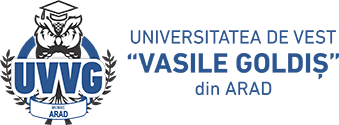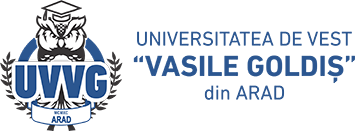STUDIES DEGREE:
BACHELOR
INFORMATICS– IF, IFR
DURATION
3 YEARS
ECTS
180
LOCATION
Arad, 86 L. Rebreanu St.
TEACHING LANGUAGE
ROMANIAN
FIELD OF STUDIES
INFORMATICS
INFORMATICS
The mission of the specialization consists in:
- professional training, initial and continuous, at university level, in the field of informatics with implications in other complementary fields;
- achieving, in the field of specialization, a higher quality education, by allocating as many resources as possible and small schooling figures, in order to ensure an individualized, high efficiency education process;
- scientific and technological research;
- transfer of science, technology and know-how in the economic and social environment, in production and in services for third parties.
SKILLS
Professional skills
- Programming in high level languages
- Development and maintenance of computer applications
- Use of computer tools in an interdisciplinary context
- Use of theoretical foundations of computer science and formal models
- Database design and management
- Design and administration of computer networks
Transversal skills
- CT1 The application of the rules of organized and efficient work, of some responsible attitudes towards the didactic-scientific field, for the creative capitalization of one’s own respecting the principles and norms of ethics
- CT2 Effective development of activities organized in an interdisciplinary group and development of empathic capacities for interpersonal communication, relationships and collaboration with various groups
- CT3 Use of efficient methods and techniques for learning, informing, researching and developing the capacities to capitalize on knowledge, to adapt to the requirements of a dynamic society and to communicate in Romanian and in a language of international circulation
SPECIFIED OBJECTIVES
- training of highly trained specialists, able to integrate effectively on the labor market and perform in relation to European standards;
- improving the quality of the educational process by using modern teaching aids;
- ensuring the teaching process with valuable teachers in order to ensure the conditions of accreditation;
- development of scientific research and dissemination of own scientific production by participating in national and international conferences;
- amplifying international relations;
- providing continuing education services through conversion, retraining and professional development programs;
- promoting an academic management of the quality of education in accordance with the principles of the Bologna Process.
Curriculum 2016-2019
Curriculum 2017-2020
Curriculum 2020-2023



